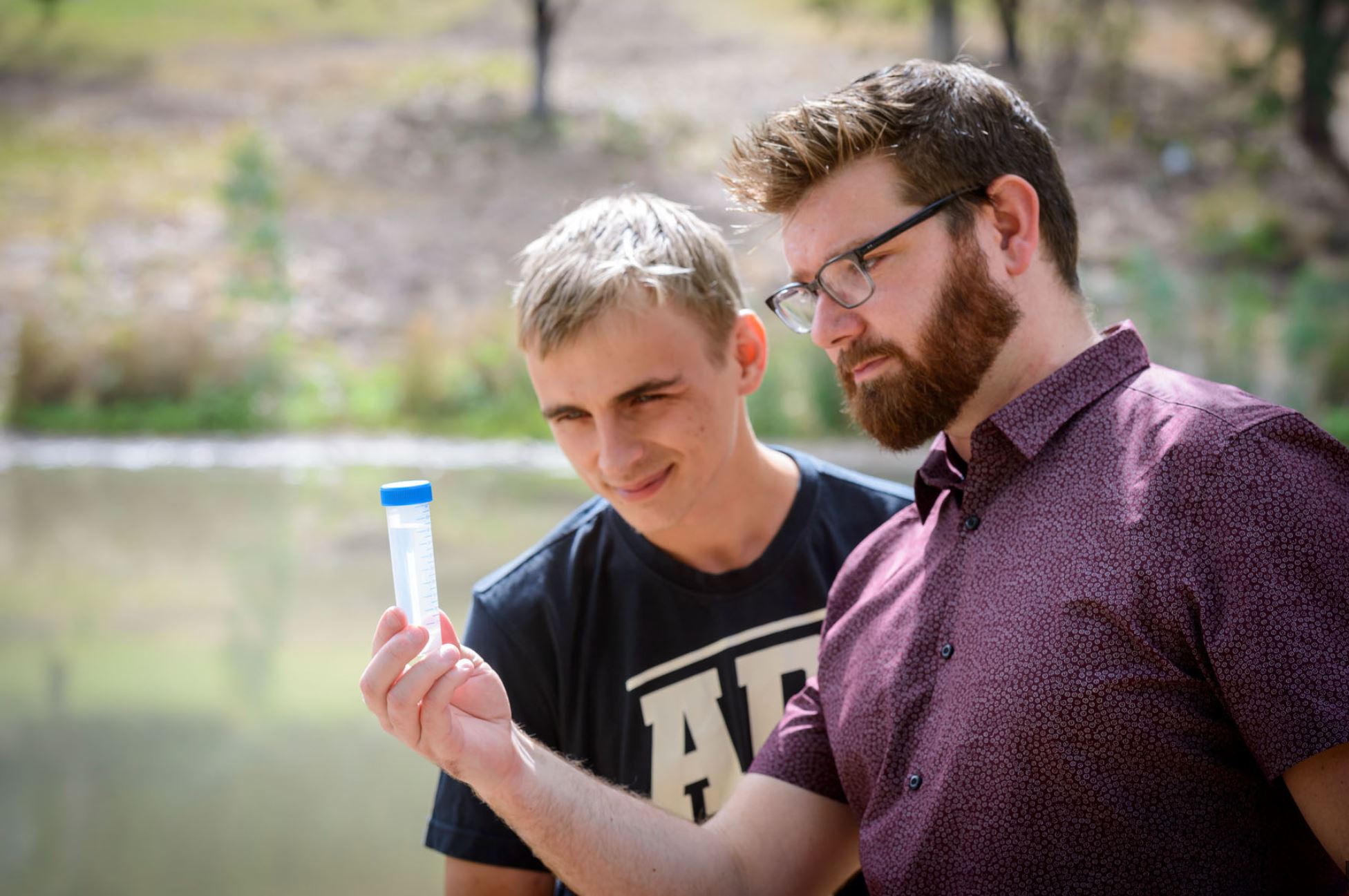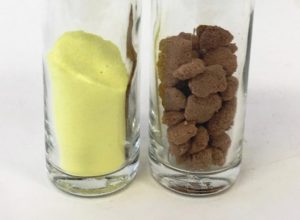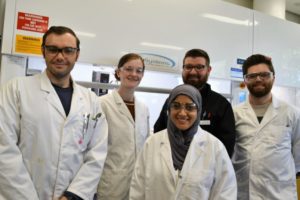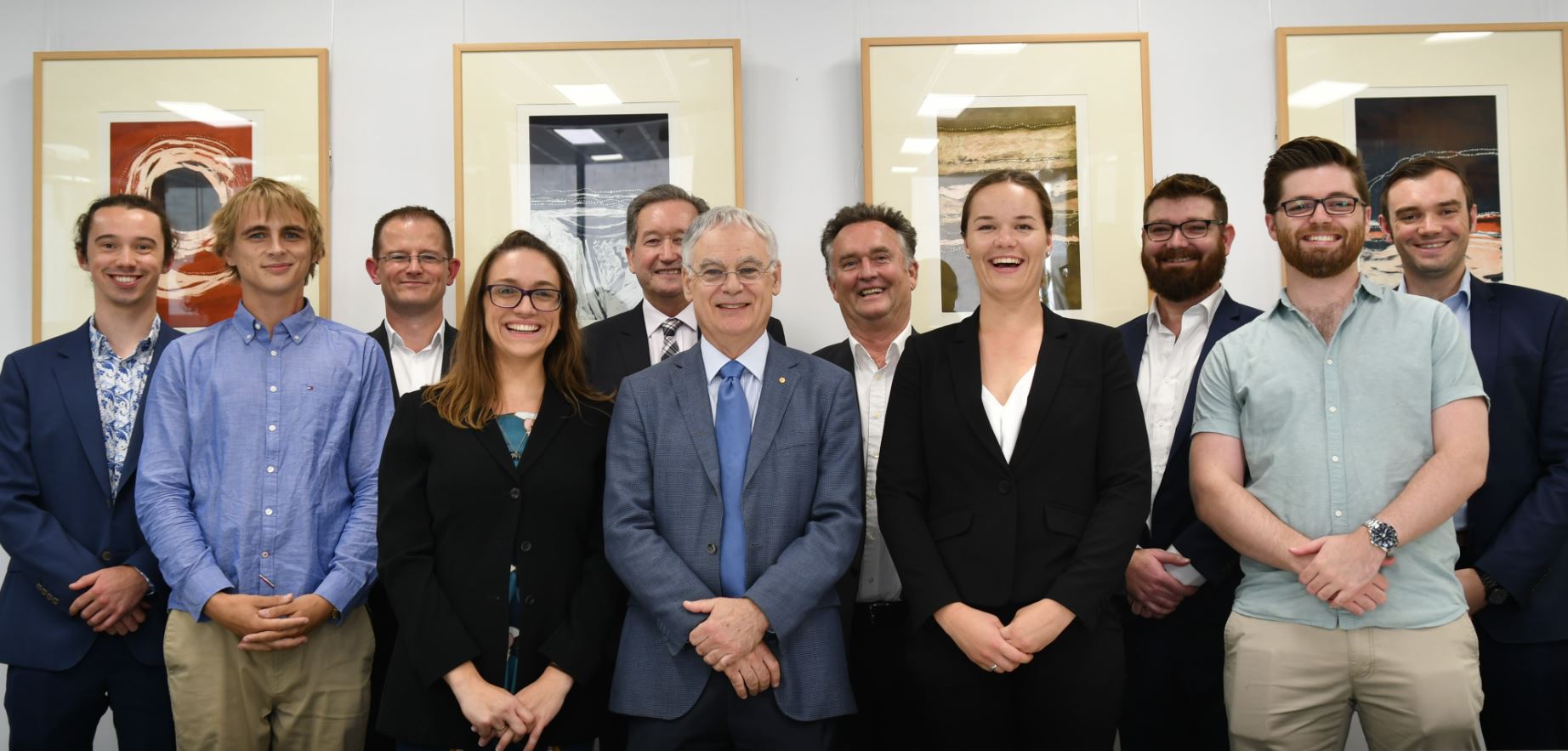
Highly acclaimed Flinders University Associate Professor Justin Chalker has won the Prize for New Innovators in the 2020 Prime Minister’s Prizes for Science.
His discovery and development of a new class of polymers that provide sustainable solutions to some of humanity’s greatest challenges – clean air, fresh water and sustainable food production – has led to a global commercialisation and distribution agreement with Clean Earth Technologies.
The Prime Minister’s Prizes for Science are Australia’s most prestigious awards for outstanding achievements in scientific research, research-based innovation and excellence in science teaching.
Associate Professor Chalker’s invention allows polymers to be synthesised directly from elemental sulfur (a by-product of the petrochemical industry) and renewable, low-cost plant oils such as limonene and canola – a welcome substitute for the unrenewable methods used in traditional plastic and rubber manufacture.

The new class of polymers, or polysulfide materials, are a new platform to solve a number of problems across multiple industries – and pave the way for a cleaner, more sustainable future for planet Earth.
US-born Associate Professor Chalker studied at the University of Pittsburgh and obtained a PhD in organic chemistry from Oxford University, England. He was a Rhodes scholar at Oxford in 2006 and has been widely awarded with scholarships and research funding, including grants from Australian Research Council Discovery Early Career and Department of the Environment and Energy schemes, AMP Tomorrow Maker and Dream Chemistry awards, and accolades in the Royal Australian Chemical Institute, Eureka Prize and SA Tall Poppy and Science Excellence award series.
The research technology has proven effective in a range of real-world applications, including removing mercury contamination from soil, retrieving oil after a large-scale spill, enabling a safe method for leaching and recovering gold, and even facilitating a slow-release fertiliser to reduce loss due to run-off. This is considered a breakthrough in crop production.
These new sulphur-polymer materials, addressing critical issues facing humanity such as ensuring clean air, water and sustainable food production, include:
Mercury remediation Environmental contamination caused by mercury is a serious global issue. Associate Professor Chalker’s polymers are excellent agents for mercury capture. They work to remove contamination from the air, water and soil at a rate and volume competitive with current commercial sorbents.
Oil-spill clean-up Associate Professor Chalker’s polymer has a high affinity for crude oil and diesel fuel, so can be useful in cleaning up oil spills. When the polymer is applied to an oil spill, it gathers the oil into a gel upon contact for easier retrieval.
Slow-release fertilisers the research shows that fertiliser nutrients can be embedded in his sulfur-based polymer. This allows the slow release of nutrients, with the polymer acting as a source of the micronutrient sulfur. Since more than 50 per cent of all fertiliser applied globally is lost to runoff, Associate Professor Chalker’s fertiliser formulation is a breakthrough in crop production.
Mercury- and cyanide-free gold mining Artisanal and small-scale gold mining is the largest source of mercury pollution on Earth, with nearly 20 million subsistence miners using mercury to extract gold from ore. In formal and large-scale gold mining, it is common to use highly toxic cyanide to leach gold. Associate Professor Chalker has recently patented a gold mining process that eliminates the use of toxic mercury and cyanide. The process features a novel and safe way to rapidly leach the gold in high yield. The sulfur polymer is then used to recover the gold. This process is being developed commercially for both gold mining and e-waste recycling.
Patents covering the various polymer materials have been purchased by Clean Earth Technologies. The company has since invested heavily in its production, supported by the construction of an advanced manufacturing plant in South Australia.
It is expected that the technology will continue to provide significant job opportunities for Australians. CET has indicated its intention to invest more than $2 million in the project in the coming years. This is in addition to the $15 million it has already attracted from external investors.

Associate Professor Chalker says the 2020 Prize for New Innovators is an honour, and “a very humbling recognition of our work to translate academic discoveries into commercial products and services”.
“Sulphur (the waste by-product of the petroleum industry), is produced in the millions of tonnes every year – there are literally mountains of it lying around the planet. We convert that waste sulfur into new polymers that have never existed before, to use in innovative applications. This includes capturing heavy metal pollution (for example, mercury), oil spill clean-up, slow-releasing fertiliser and the recovery of valuable metals such as gold,” he says.
“We’re proud to be working with Clean Earth Technologies to translate these laboratory discoveries into global technologies that help protect the environment. CET has invested heavily in South Australia to get a plant up and running to produce this material, and will continue investing over the next five years to support manufacturing in South Australia.
“I’m passionate about science and research because of the thrill of the discovery. I’m particularly attracted to the idea of building molecules and materials that have never existed before and then using them in applications that benefit humanity. I can’t imagine working in any other field,” Associate Professor Chalker says.

“Training in STEM is critical for developing problem-solving skills. Fostering diversity in STEM is also critical to solve the challenges that we face. We need to draw upon all available resources to make the discoveries that will shape the future of humanity.”
Flinders University Deputy Vice-Chancellor (Research) Professor Robert Saint, says: “Simply put, Associate Professor Chalker is one of Australia’s rising stars in research and innovation.
“His inventions are the basis for products and services that benefit the environment: toxic mercury pollution is removed from air, water and soil; coastlines are protected from oil spills; precision fertilisers aid in sustainable food production; and, clean mining technology helps support economic growth in a safe and sustainable way,” says Professor Saint.
“Ensuring clean air and water, and sustainable food production are among the most important challenges we face. Associate Professor Justin Chalker has invented several technologies that support these priorities in sustainability.”


